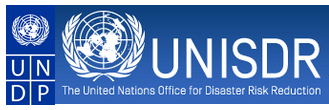The 5th Leadership Development Forum (LDF) on Mainstreaming Adaptation and Disaster Risk Reduction into Development (MADRiD), which focused on sub-regional leadership development in southern Africa, aimed to improve understanding of the nature, scope and importance of mainstreaming disaster risk reduction (DRR) and climate change adaptation into national development planning and budgetary processes; and increase social demand and political commitment for integrating DRR and adaptation into economic and social planning processes.
 28 August 2015: The 5th Leadership Development Forum (LDF) on Mainstreaming Adaptation and Disaster Risk Reduction into Development (MADRiD), which focused on sub-regional leadership development in southern Africa, aimed to improve understanding of the nature, scope and importance of mainstreaming disaster risk reduction (DRR) and climate change adaptation into national development planning and budgetary processes; and increase social demand and political commitment for integrating DRR and adaptation into economic and social planning processes. Each participating country developed a DRR and adaptation mainstreaming action plan to be implemented over the next one to three years.
28 August 2015: The 5th Leadership Development Forum (LDF) on Mainstreaming Adaptation and Disaster Risk Reduction into Development (MADRiD), which focused on sub-regional leadership development in southern Africa, aimed to improve understanding of the nature, scope and importance of mainstreaming disaster risk reduction (DRR) and climate change adaptation into national development planning and budgetary processes; and increase social demand and political commitment for integrating DRR and adaptation into economic and social planning processes. Each participating country developed a DRR and adaptation mainstreaming action plan to be implemented over the next one to three years.
Forum outcomes also included: increased awareness of disaster and climate resilient development, including links between DRR, adaptation and the wider development context; a better understanding of the conceptual and operational underpinnings of development planning and budgetary processes that integrate both disaster and climate risks, including mainstreaming approaches; improved knowledge of technical resources for advancing risk reduction and adaptation in development planning; an increased comprehension of global systems and mechanisms, such as the Hyogo Framework for Action, the Sendai Framework for Disaster Risk Reduction 2015-2030, the proposed Sustainable Development Goals (SDGs), and ongoing negotiations under the UN Framework Convention on Climate Change (UNFCCC); and the ability to generate and share knowledge on integrated approaches to disaster and climate resilient development through lessons learned and best practices.
Angelika Planitz, Bureau for Policy and Programme Support, the UN Development Programme (UNDP), said that the LDF provided an opportunity for regional countries to share their lessons and capacities, and that strengthened bonds between countries will enable more effective disaster preparedness, as well as advance risk reduction.
The LDF was organized by the Global Education and Training Institute (GETI) of the UN Office for Disaster Risk Reduction (UNISDR) and UNDP, and jointly hosted by the Southern African Development Community (SADC) Secretariat and the Governments of the Republic of Korea and Mozambique. The Forum, which convened from 26-28 August in Maputo, Mozambique, brought together government representatives and technical experts from DRR focal ministries, other sector ministries, and research and training institutes from select Southern African countries, including Kenya, Malawi, Mozambique, South Africa and Zimbabwe. [UNDP Press Release] [Overview of Madrid] [IISD RS Sources]